Peugeot 308 vs Renault Arkana - Differences and prices compared
Costs and Efficiency:
Looking at overall running costs, both models reveal some interesting differences in everyday economy.
Renault Arkana has a barely noticeable advantage in terms of price – it starts at 28500 £, while the Peugeot 308 costs 29200 £. That’s a price difference of around 780 £.
Fuel consumption also shows a difference: Peugeot 308 manages with 2.30 L and is therefore clearly more efficient than the Renault Arkana with 4.70 L. The difference is about 2.40 L per 100 km.
Engine and Performance:
Under the bonnet, it becomes clear which model is tuned for sportiness and which one takes the lead when you hit the accelerator.
When it comes to engine power, the Peugeot 308 has a clearly perceptible edge – offering 195 HP compared to 143 HP. That’s roughly 52 HP more horsepower.
In acceleration from 0 to 100 km/h, the Peugeot 308 is clearly quicker – completing the sprint in 7.60 s, while the Renault Arkana takes 10.80 s. That’s about 3.20 s faster.
In terms of top speed, the Peugeot 308 performs evident better – reaching 225 km/h, while the Renault Arkana tops out at 172 km/h. The difference is around 53 km/h.
There’s also a difference in torque: Peugeot 308 pulls distinct stronger with 300 Nm compared to 205 Nm. That’s about 95 Nm difference.
Space and Everyday Use:
Beyond pure performance, interior space and usability matter most in daily life. This is where you see which car is more practical and versatile.
Seats: offers more seating capacity – vs .
In curb weight, Peugeot 308 is slight lighter – 1453 kg compared to 1510 kg. The difference is around 57 kg.
In terms of boot space, the Renault Arkana offers to a small extent more room – 480 L compared to 412 L. That’s a difference of about 68 L.
In maximum load capacity, the Peugeot 308 performs minimal better – up to 1323 L, which is about 60 L more than the Renault Arkana.
When it comes to payload, Peugeot 308 somewhat takes the win – 503 kg compared to 451 kg. That’s a difference of about 52 kg.
Who wins the race?
The Peugeot 308 proves to be dominates this comparison and therefore becomes our DriveDuel Champion!
Peugeot 308 is the better all-rounder in this comparison.
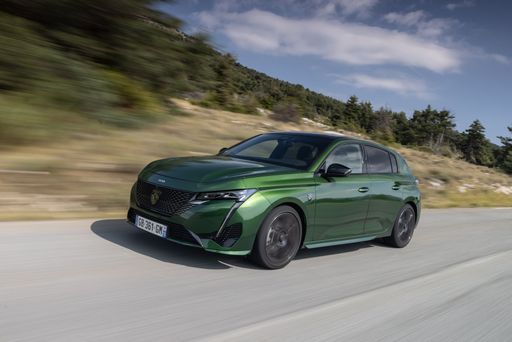 @ Peugeot / Stellantis Media
@ Peugeot / Stellantis Media
Peugeot 308
Costs and Consumption
View detailed analysis
Engine and Performance
View detailed analysis
Dimensions and Body
View detailed analysis
Peugeot 308
The Peugeot 308 brings a sleek, feline profile and an unexpectedly upscale cabin, with clever packaging and materials that feel a touch more premium than you might expect. It’s composed on the road, easy to live with for daily life, and a smart choice if you want a stylish hatch that still behaves when the road gets interesting.
details @ Peugeot / Stellantis Media
@ Peugeot / Stellantis Media
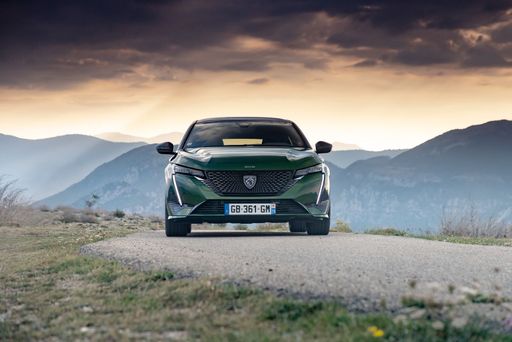 @ Peugeot / Stellantis Media
@ Peugeot / Stellantis Media
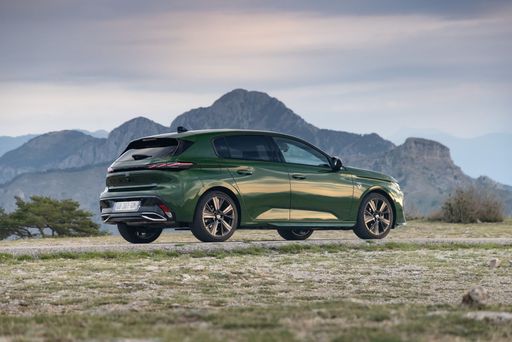 @ Peugeot / Stellantis Media
@ Peugeot / Stellantis Media
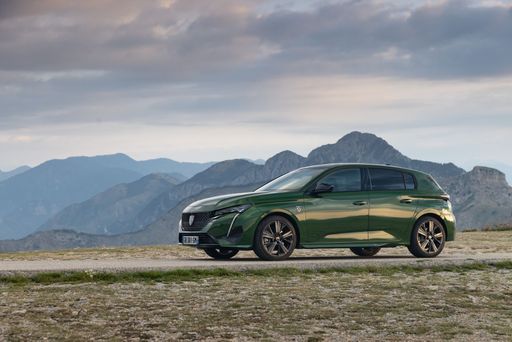 @ Peugeot / Stellantis Media
@ Peugeot / Stellantis Media
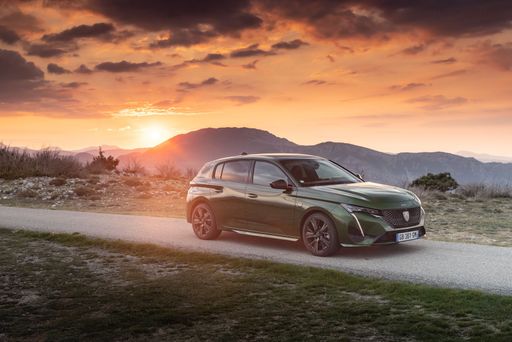 @ Peugeot / Stellantis Media
@ Peugeot / Stellantis Media
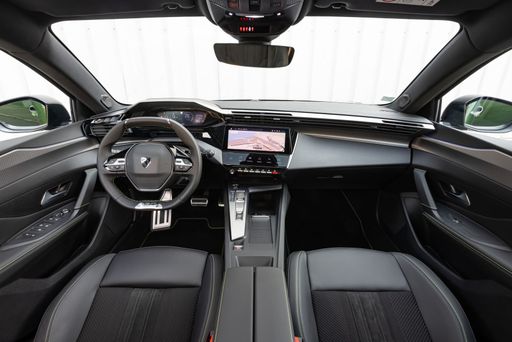 @ Peugeot / Stellantis Media
@ Peugeot / Stellantis Media
Renault Arkana
The Arkana stands out with its striking coupe-SUV design, blending sporty aesthetics with practicality. Its bold silhouette and high ride height offer a unique presence on the road, attracting attention wherever it goes. Inside, the Arkana combines modern technology with comfort, making it a versatile choice for both city driving and weekend getaways.
details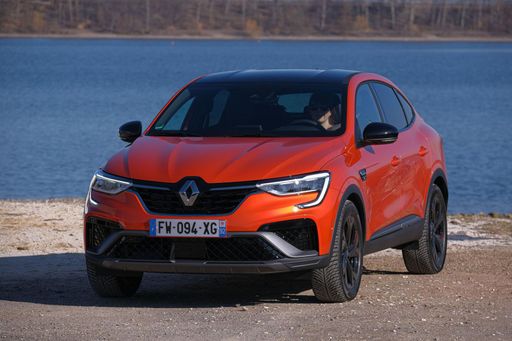 @ Renault Group Media
@ Renault Group Media
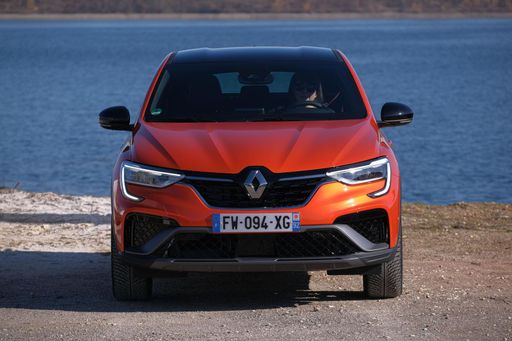 @ Renault Group Media
@ Renault Group Media
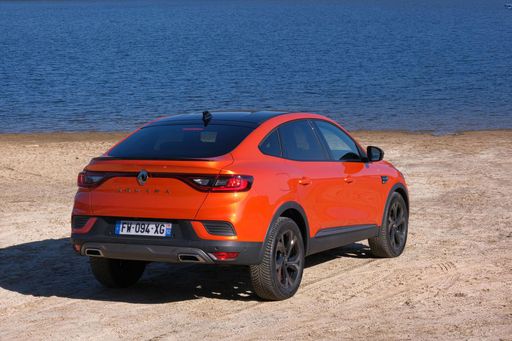 @ Renault Group Media
@ Renault Group Media
 @ Renault Group Media
@ Renault Group Media
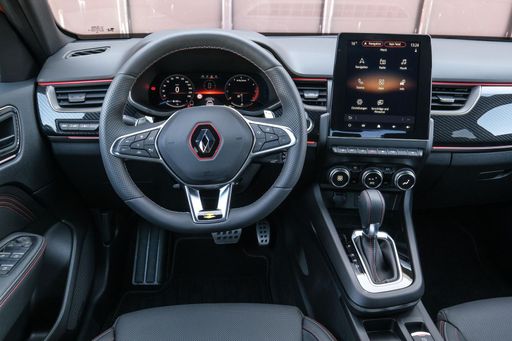 @ Renault Group Media
@ Renault Group Media
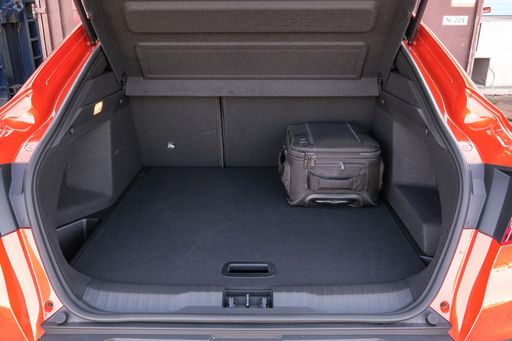 @ Renault Group Media
@ Renault Group Media
 @ Peugeot / Stellantis Media
@ Peugeot / Stellantis Media
|
 @ Renault Group Media
@ Renault Group Media
|
|
|
|
Costs and Consumption |
|
|---|---|
|
Price
29200 - 42600 £
|
Price
28500 - 31900 £
|
|
Consumption L/100km
2.3 - 5 L
|
Consumption L/100km
4.70 L
|
|
Consumption kWh/100km
15.60 kWh
|
Consumption kWh/100km
-
|
|
Electric Range
78 - 450 km
|
Electric Range
-
|
|
Battery Capacity
0.40 kWh
|
Battery Capacity
0.60 kWh
|
|
co2
0 - 129 g/km
|
co2
106 g/km
|
|
Fuel tank capacity
42 - 52 L
|
Fuel tank capacity
50 L
|
Dimensions and Body |
|
|---|---|
|
Body Type
Hatchback
|
Body Type
SUV
|
|
Seats
5
|
Seats
5
|
|
Doors
5
|
Doors
5
|
|
Curb weight
1453 - 1749 kg
|
Curb weight
1510 kg
|
|
Trunk capacity
314 - 412 L
|
Trunk capacity
480 L
|
|
Length
4367 mm
|
Length
4568 mm
|
|
Width
1852 mm
|
Width
1821 mm
|
|
Height
1438 mm
|
Height
1576 mm
|
|
Max trunk capacity
1258 - 1323 L
|
Max trunk capacity
1263 L
|
|
Payload
430 - 503 kg
|
Payload
451 kg
|
Engine and Performance |
|
|---|---|
|
Engine Type
Petrol MHEV, Diesel, Plugin Hybrid, Electric
|
Engine Type
Full Hybrid
|
|
Transmission
Automatic
|
Transmission
Automatic
|
|
Transmission Detail
Dual-Clutch Automatic, Automatic Gearbox, Reduction Gearbox
|
Transmission Detail
Automatic Gearbox
|
|
Drive Type
Front-Wheel Drive
|
Drive Type
Front-Wheel Drive
|
|
Power HP
131 - 195 HP
|
Power HP
143 HP
|
|
Acceleration 0-100km/h
7.6 - 10.6 s
|
Acceleration 0-100km/h
10.80 s
|
|
Max Speed
170 - 225 km/h
|
Max Speed
172 km/h
|
|
Torque
230 - 300 Nm
|
Torque
205 Nm
|
|
Number of Cylinders
3 - 4
|
Number of Cylinders
4
|
|
Power kW
96 - 144 kW
|
Power kW
105 kW
|
|
Engine capacity
1199 - 1598 cm3
|
Engine capacity
1598 cm3
|
General |
|
|---|---|
|
Model Year
2025
|
Model Year
2025
|
|
CO2 Efficiency Class
C, D, B, A
|
CO2 Efficiency Class
C
|
|
Brand
Peugeot
|
Brand
Renault
|
Is the Peugeot 308 offered with different drivetrains?
Available configurations include Front-Wheel Drive.
The prices and data displayed are estimates based on German list prices and may vary by country. This information is not legally binding.
